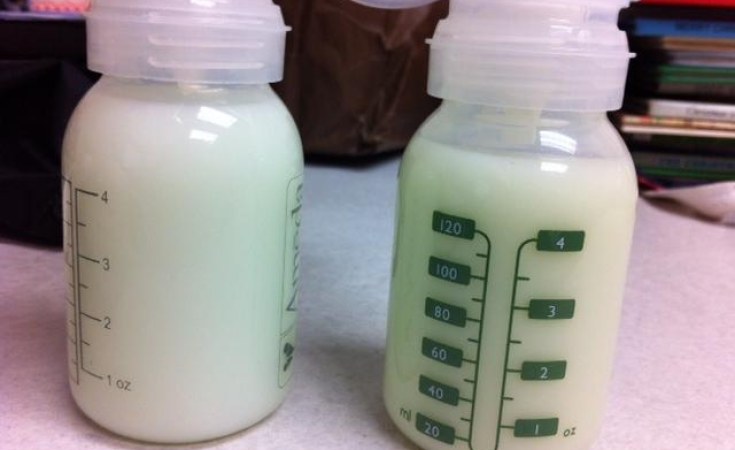Mrs Obinwanne said neonatal mortality statistics in Nigeria is alarming and that the company's efforts are targeted at contributing to reducing the menace.
Towards stemming neonatal mortality in the country, a Nigerian milk booster and lactation company - The Milk Booster, has launched what is now arguably the first breast milk bank in the country.
Launched as part of the activities towards marking this year's annual Breastfeeding Week, the company's founder and managing director, Chinny Obinwanne, said the idea stemmed from her personal experience and training not only as a medical doctor but also as a member of the Academy of Breastfeeding Medicine.
She said the new bank will prioritise "babies that are very low in weight, sick and healthy preterm babies, sick full term babies, and other babies whose mothers don't want to breastfeed."
Mrs Obinwanne said neonatal mortality statistics in Nigeria is still alarming and that the company's efforts are targeted at contributing to reducing the menace.
Neonatal Mortality in Nigeria
Regarded as the number of neonates dying before reaching 28 days of age, per 1,000 live births in a given year, neonatal mortality rate in Nigeria is said to currently stand at 35 deaths per 1,000 live births as of 2022.
According to Knoema, a data resource website, the neonatal mortality statistics in Nigeria was 65 deaths per 1,000 live births as of 1971, before reducing to 35 deaths in 2020.
Mrs Obinwanne said Nigeria has the highest neonatal mortality rate in Africa and the third highest premature rate in the world.
Meanwhile, the United Nations Children's Fund (UNICEF) and the World Health Organisation (WHO) have said over 70 per cent of children in Nigeria are denied breast milk.
UNICEF Executive Director Catherine Russell and WHO Director-General Tedros Ghebreyesus in a joint statement to celebrate the 2022 World Breastfeeding Week said as global crises continue to threaten the health and nutrition of millions of babies and children, the vital importance of breastfeeding as the best possible start in life is more critical than ever.
"This World Breastfeeding Week, under its theme; "Step Up for Breastfeeding: Educate and Support," UNICEF and WHO are calling on governments to allocate increased resources to protect, promote, and support breastfeeding policies and programmes, especially for the most vulnerable families living in emergency settings," the statement noted.
Breast milk as solution
Speaking at the launch at the weekend, the milk bank founder said the country loses billions of naira annually addressing some challenges in the paediatric health sector, which she noted are quite avoidable if adequate breastfeeding is done by mothers.
She said that it is cheaper for Nigeria to invest in breastfeeding than to invest in treating the sicknesses that will arise from not breastfeeding babies accurately.
She said the new initiative is not new globally but agreed that it is a culture alien to Africa and Nigeria in particular. She, however, agreed that the situation is improving.
She said; "I have had women come to me asking for breast milk for premature babies. Once a set of triplets needed breastmilk badly because their mother died but we couldn't help. Whenever we lose babies due to lack of breastmilk, my heart bleeds because it ends up increasing the already high neonatal mortality rate in Nigeria.
"So, I have taken it upon myself to provide pasteurised breast milk for these babies so that they will be able to have a chance at life," she said.
Breast milk over formula
Mrs Obinwanne, a member of British Lactation Consultants, said there is a misconception that formula and breastmilk are the same.
She said; "The difference is huge but the formula companies keep pushing it to our faces and if you are not knowledgeable on breastfeeding, you will fall into their trap.
"That is why WHO says if a baby is not getting his mother's milk, the next step is a donor's breast milk before you offer infant formula".
She said her organisation will put in a lot of effort in creating awareness, educating mothers so that they will change their mindsets.
Pasteurised breastmilk
Speaking on how her organisation gets the breast milk, Ms Obinwanne said the firm already has some donors who have excessive milk supply but that she is also working hard to increase the number of donors.
She said, after screening the mother, we get the breast milk, process it and pasteurise it, then test the breast milk again to be sure that it is safe before we give it to the baby.
"We screen them for HIV Hepatitis B, Hepatitis C, Syphilis and HTLV. We don't sell breast milk, that's why every mom that is donating is a volunteer donor. You are not selling the breast milk to us but we will be paying for the screening, we will be sustaining the facility, so it is going to be a similar pathway to the way blood banks work," she said.
Electricity challenge
She, however, noted that the initiative faces the power supply challenge, saying the development has compelled the company to currently locate the bank within its existing company facility.
"Because of poor electricity, we are starting up in the milk booster facility where we have constant power supply.
"So, the milk bank is starting inside the same facility with the hope that very soon, the milk bank would have grown big enough to have a bigger space and facility," she said.


